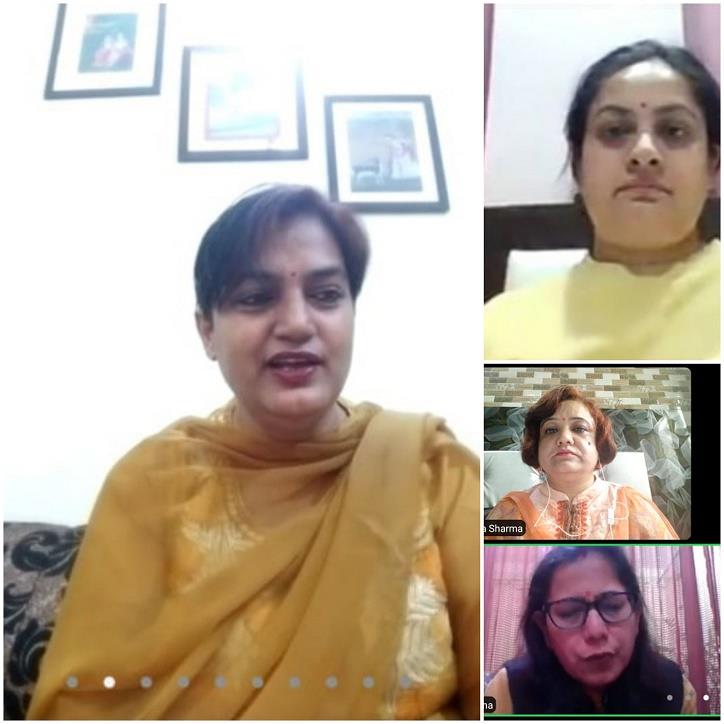DSEJ organises webinar on Gender in School education, gender concerns in NEP 2020
Jammu: A webinar on “Gender in School Education and Gender Concerns in National Education policy 2020” was today organized by Directorate of School Education Jammu in collaboration with Centre for Women Studies, University of Jammu.
The webinar was inaugurated by Director School Education Jammu, Anuradha Gupta and attended by a large number of Teachers, Students and other stakeholders.
Addressing the participants, the Director said that education is the vehicle which can provide security, stability and due recognition to the girls, while giving them a platform to grow to their fullest in every sphere.
Focusing on the Current National Policy on Education, she said that one of the landmark initiatives of the Ministry of education was the constitution of the Gender Inclusion Fund in order to provide the quality and equitable education to the girls across the country.
The vision is to decrease the gender parity gaps in school education by ensuring the 100 percent enrolment of the girls in schools, she added.
The policy focuses on promoting gender sensitive curriculum for addressing gender discrimination at all levels of education, said Anuradha Gupta. She exhorted that there is need to be curious towards the gender issues in schools and for this purpose the role of society and individual was inevitable.
In the keynote address, former Professor, Advanced centre for Women Studies, Tata Institute of Social Sciences and former Head, Deptt. Of Economics, SNDT University, Mumbai, Prof. Vibhuti Patel, said that in this era of Knowledge economy there was a dire need to provide access and equity to those who are otherwise unreached, especially the girls belonging to the most disadvantaged sections of the society. She added that the need was to provide vocational training to the girls.
She said that NEP 2020 had laid special focus on the skill development and vocational training adding that the new policy stresses on pre primary education, no detention policy and decrease of dropout rate etc.
Prof. Vibuhati Patel further said that for erecting the pillars of Knowledge economy, economic and institutional regime, well-educated and skilled population that creates, shares and uses knowledge efficiently, information infrastructure, and efficient innovation system can be achieved by focusing on creation of think tanks and research that would in return help in achieving the sustainable development goals in education by 2030.
She stressed on wide participation of the girls in MOOCS and other micro blogging sites and social media for democratizing education among the girls. There was a need to develop digital infrastructure as most of the people are devoid of it, she pointed out.
Prof. Vishav Raksha, Director, Centre for Women Studies, University of Jammu, while addressing the participants said that the need was to create gender sensitization that was prerequisite in all spheres. She said that the need was to avail certain outreach and extension activities to provide sensitization in the filed.
Later, a discussion session was held in which participants discussed about the implication of the new innovations in school education to achieve the goal of inclusiveness.
The Welcome address of the webinar was presented by Surjit Singh Badshali, Head, Cultural and Education Cell, DSEJ, whereas the webinar proceedings were carried out by Alka Sharma. The vote of thanks was presented by Ashutosh Sharma.

